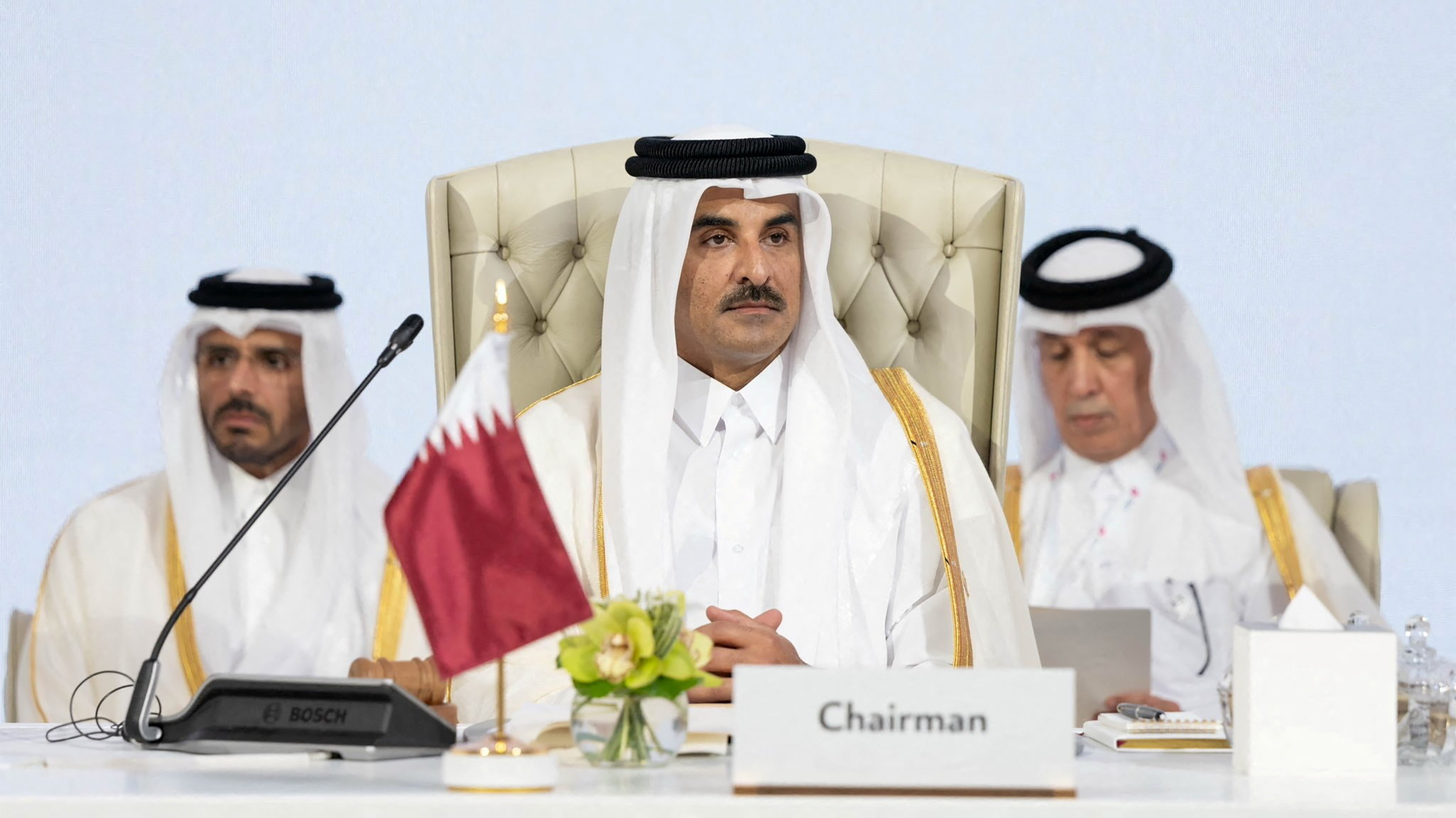
An Israeli airstrike on a residential area targeting Hamas’s negotiation delegation in Doha on 9 September 2025, sparked tremendous anger among the Qatari leadership. It was not only an unjustified violation of Qatar’s sovereignty and a flagrant violation of international law, but also undermined Qatar’s efforts to mediate between the Israeli government and Hamas. Although Qatar’s role as mediator is sanctioned by the US administration, questions remain about US President Donald Trump’s foreknowledge of the attack and whether he could have halted the operation if he so desired.
The primary objective of the attack was not only to assassinate Hamas’s negotiating team, but to eliminate the group’s politburo. In this it failed. Viewed against the backdrop of Israeli’s genocidal assault on the Gaza Strip, a broader objective can be discerned. Now two years into a war that has failed to defeat Hamas or free the Israeli captives in Gaza, Israeli Prime Minister Benyamin Netanyahu likely hoped that by wiping out Hamas’s political leadership, he could present the Israeli public with an unequivocal moment of victory, much like he did when Israel assassinated Hezbollah’s top leadership.
The Doha attack is also indicative of a strategic shift in Israel’s relations with its Arab and Muslim neighbours, signs of which have been evident in Israel’s actions across the region for the last year. This is the broader context for the attack on Iran, which despite its ties to Hezbollah and Hamas, was not a direct party to the war on Gaza. In Syria, too, Israel stepped up airstrikes immediately after the fall of the Assad regime, with the goal of systematically destroying the Syrian army’s capabilities. In occupying more Syrian territory in the south and opening channels of communication with Syrian Druze and Kurdish separatists, Israel is attempting to thwart Damascus’s efforts to unify and stabilise the country.
Israel has threatened Iraq and targeted sites in Iraq at least once, while in Lebanon, it refuses to commit to withdrawing from the territory it occupied during the recent war against Hezbollah. With Egypt, it is leveraging its deal to supply the country with gas to demand that Cairo open the Rafah crossing to allow the expulsion of Palestinians from the Gaza Strip into Sinai. Meanwhile, figures close to Netanyahu’s coalition have been issuing threats against Turkey for months, and more recently, against Pakistan, warning it against offering support to Iran or Arab states targeted by Israel.
If Israel’s regional policy prior to 7 October 2023 was based on pre-emptive action, when possible, against concrete, imminent threats in its immediate neighbourhood, the Netanyahu government is now seeking to impose Israel’s will on the entire area from Islamabad to Cairo, and from the Black Sea to the Gulf of Aden, to pre-empt all forms of potential resistance or to push states to adopt policies that serve Israeli interests. That no voice has been heard in Israel openly opposing this new approach suggests that it has become a policy of state, not merely of the governing coalition.
In the wake of the attack, the UN Security Council convened and issued a statement condemning the strike. This no doubt brought Qatar some satisfaction given the current international order and the staunch US defence of Israel. A quickly organised Arab-Islamic summit also culminated in a statement of condemnation and called for some punitive measures against Israel, urging member states to reconsider their diplomatic and economic ties with Israel and take action to hold Israel and Israeli officials accountable in international forums.
There are indications that the aggression against Qatar will spur Gulf states to reposition themselves in the international arena, though this will not be openly declared at summits. For years, Saudi Arabia has struck weapons and military manufacturing agreements with Turkey and China, and is attempting to join a European-Japanese programme to manufacture a sixth-generation fighter jet. It is no secret that the kingdom’s goal is to diversify its security partnerships while maintaining special relationships with Western countries.
In the past, the United States has failed to fulfil its responsibilities to protect Saudi facilities from bombing by the Houthis in Yemen or by pro-Iranian factions in Iraq. Nor has it protected the United Arab Emirates from similar Houthi bombings. Now, too, the United States has also failed to prevent Israel from attacking Qatar and has not stood up in its defence. This requires strategic measures to deter any hostile party from attacking Doha in the future.
*This is a summary of a policy brief originally written in Arabic available here.